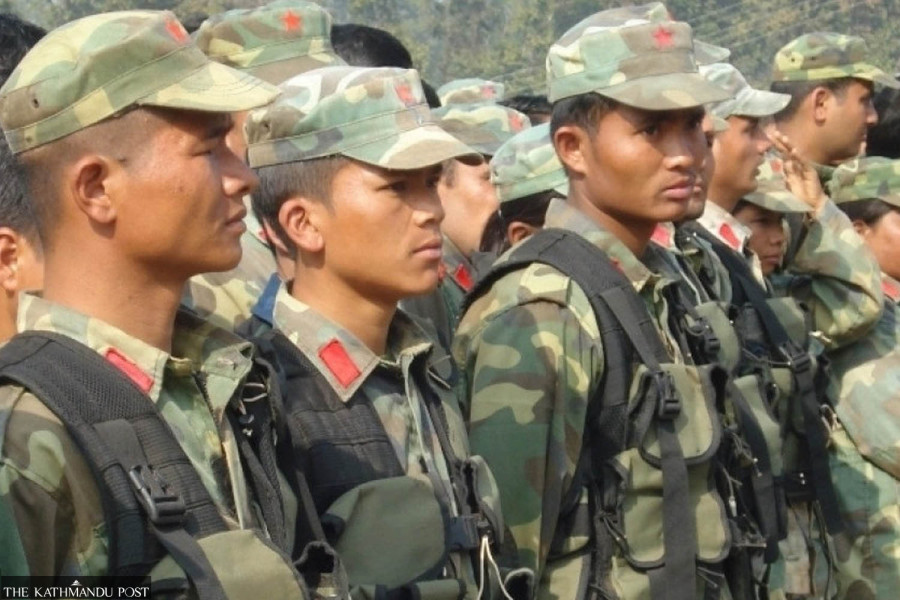Editorial
Can’t buy justice
Dahal is trying to whitewash a grave rights violation: Employing child soldiers in insurgency.
Now that Prime Minister Pushpa Kamal Dahal has secured a trust vote for the second time, the former commander-in-chief of the Maoist insurgents has found an opportune moment to derail the transitional justice process. The eight parties that have supported him have yet to join the government, and there is a political vacuum. On Monday, the Dahal government announced a relief package of Rs200,000 each for around 4,000 child soldiers and late recruits who had been disqualified during the 2007 Army integration process.
At first glance, the Rs800 million relief plan for the former child soldiers seems like no problem; after all, they are Nepalis who have been wronged, their childhood robbed by fancy dreams of change. However, the intent behind the announcement is dicey. Dahal seems committed to brushing under the rug a grave human rights violation: The crime of employing child soldiers in an insurgency. The idea seems to be to exploit state coffers to absolve himself of the legal complications and moral responsibilities of recruiting child soldiers.
Dahal’s attempt exhibits a desperation to derail the transitional justice process by luring victims away from the process, a group at a time. He has been wary of the transitional justice process since his entry into mainstream politics. This explains his eagerness to remain in power at any cost. Dahal’s wish seems to be to get done with the justice process without a dent in his political or moral standing. What is alarming is that things are working in his favour, as victims are slowly drifting away or dying, and the evidence of grave crimes disappearing.
Even more alarming is the calculated silence of the established political parties other than the Maoists even as they witness Dahal’s excesses. The Nepali Congress, which never fails to profess the ideals of democracy and justice, has failed to take up the issue of transitional justice effectively. In fact, it was party to Dahal’s game plan when the government in July last year tabled a bill to amend the transitional justice Act in Parliament. Other smaller parties like the Rastriya Swatantra Party and the Janamat Party, both of which came to parliamentary politics calling for an end to the irresponsible ways of the established parties, have now turned allies to the same parties.
It is happening in bits and pieces—the undoing of transitional justice. First, they delayed the beginning of the process itself, letting considerable time pass between the events of crimes against humanity in the insurgency and the time of reporting to the justice process; and now they are dismissing one issue after another while the ideals of justice and reparation remain sidelined. The idea seems to be to attack the transitional justice process from all sides so that even the controversial bill to amend the justice Act appears benign.
The parties in the current coalition government, and the opposition no less, should stand up and show that they have not signed up for blanket amnesty on all kinds of human rights violations committed during the insurgency. Otherwise, they will be considered parties to the excesses of the former insurgents.




 10.12°C Kathmandu
10.12°C Kathmandu













